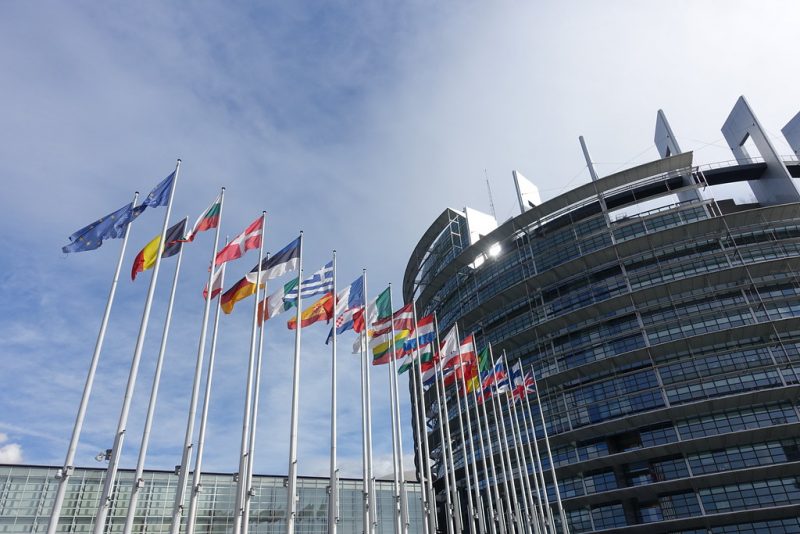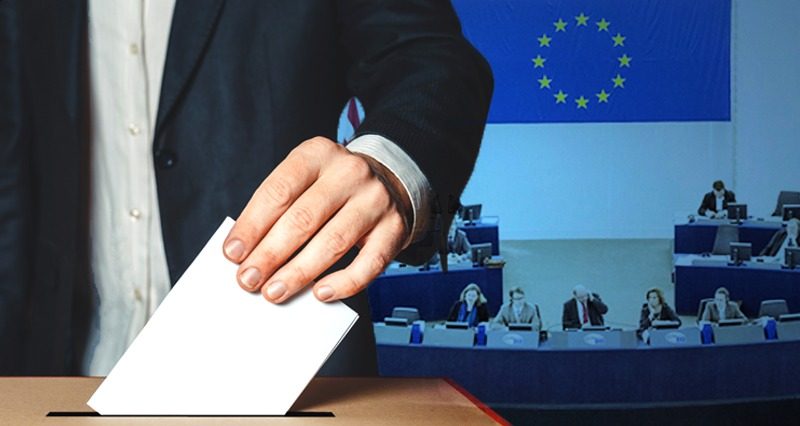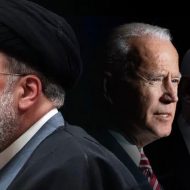In total, citizens of 28 countries, including the United Kingdom who has not yet officially left the EU, will take part in the 2019 European elections. In total, 426 million voters are eligible to participate in the elections.
Today the #EUelections2019 begin ⤵️
23 May 🇳🇱🇬🇧
24 May 🇮🇪🇨🇿
25 May 🇱🇻🇲🇹🇸🇰🇨🇿
26 May 🇪🇸🇵🇹🇩🇪🇱🇺🇨🇾🇮🇹🇬🇷🇦🇹🇫🇮🇭🇷🇧🇬🇫🇷🇭🇺🇸🇮🇷🇴🇩🇰🇪🇪🇧🇪🇱🇹🇵🇱🇸🇪
Choose your future.#ThisTimeImVoting
Here's all you need to know ⤵️ https://t.co/KykzEhAjYn
— Antonio Tajani (@EP_President) May 23, 2019
The ghost of Brexit
The Brexit issue is one factor seriously complicating the EU elections. The UK has still not left the EU, but likely will in the coming year. The country was unable to leave the EU before the designated deadline, and so representatives of British parties will be included in the new composition of the European Parliament. This threatens to cause problems in the near future – after the official proclamation of secession from the EU, the British will leave parliament leaving 73 free deputy chairs behind.

Flickr
If Brexit takes place, then 46 of the 73 vacated British places will not be occupied and will remain in reserve in case of a possible EU enlargement. The remaining 27 seats will be distributed among the 14 EU member states, but will only be occupied after the UK’s final withdrawal from the European Union.
According to The Guardian, the Brexit party is likely to win the UK election. The organization has existed little more than two months – but, judging by opinion polls, it is supported by about 34% of British people. The well-known euro-skeptic and populist Nigel Farage heads the new party. It’s not the first time he has led a new party to break the traditional political mold in an election- in 2014, his Independence Party won, having obtained 24 seats in parliament. At present, they have only three deputies representing the party.
Last month, the Times wrote that Prime Minister Theresa May was already preparing the dissolution of her office. On Friday, May 24, she stepped down as Prime Minister of the UK, leaving her successor with very little time to negotiate a deal before the October
Euroscepticism on the rise
The growing popularity of Eurosceptic groups can be explained by critical dissatisfaction over the results of EU economic policy and migration. This has created national and religious conflict alongside economic crisis and unemployment. Lack of planning and strategy for the integration of the victims of the Syrian war into Europe led to catastrophic clashes between the local population and heavy influxes of migrants fleeing the conflict.
Eurosceptic parties not only take on migration but also focus also on the concept of “the people”– according to them the people’s interests are being ignored by EU elites. The 2014 eurosceptic EU Groups (Italy’s Lega and Le Pen’s National Rally) are aiming for a massive reformation of the EU, as the question of Frexit and Italexit become deeper parts of public discourse.
Per loro più Europa, per noi PIÙ ITALIA🇮🇹, sempre! #domenicavotoLega pic.twitter.com/8ki4AOL388
— Matteo Salvini (@matteosalvinimi) May 25, 2019
However, withdrawing from the EU is not currently a strong part of the agenda for these so-called populists or Eurosceptic parties. As Marine Le Pen said as a part of her 2017 presidential platform. “We didn’t have much choice: either we had to stay [in the EU] or we had to leave it. But now we have allies, ”she said, justifying the new tactics. Similarly, at the end of 2018, Salvini said that the rejection of a single currency is “impossible” for Italy… at least for now.
The emphasis in their program entitled “a Europe of Nations and Freedoms” is placed on the issue of the preservation of civilizational heritage and counteracting foreign cultural migration. A joint statement endorsing the platform was signed by various EU parties, explaining that the alliance will “fight for a safer Europe with well-protected external borders, less immigration and closer cooperation in the fight against terrorism and Islamization”. Matteo Salvini added: “We must put work, family, safety, environmental protection at the center [of propaganda].”
According to the forecasts of the European Council on Foreign Relations, the ENF faction will increase its membership in the new European Parliament, by optimistic estimates, up to 86 European deputies.
📢 Between the 23rd and 26th of May, let's restore proudness and dignity for our peoples in Europe : vote for a Europe of cooperations!
🗳 Vote for the real Europe! #EE2019 #EP2019 #ElectionsUE19 #européennes2019
Cc @MLP_officiel @matteosalvinimi @gannemans pic.twitter.com/C57JSzZpPe— MENF (@menleuropa) May 23, 2019
It’s important to note that their growing popularity symbolizes the deep crisis of the liberal globalist political agenda, which has focused on the interests of a small group of financial elites in the EU.
The possible absence of the parliamentary majority
According to a study published on the European Parliament’s website, support for the parties traditionally at the helm in EU politics is steadily declining, and, according to the results of these elections, runs the risk of hitting a historical low. Thus, the number of deputies from the largest center-right faction “European People’s Party” may be reduced by around 18%, and the second-ranked Progressive Alliance of Socialists and Democrats could lose about 1/5 of the seats.
''We as the EPP, we have the right programmatic plan and ideas to move the European Union in the right direction'' @ManfredWeber in the EPP Campaign Closing event in Munich. Check out our 12 priorities ⬇️#ThePowerOfWE 💪 #StrongerTogether🇪🇺 pic.twitter.com/9cFzBbAhlM
— EPP (@EPP) May 24, 2019
According to preliminary forecasts, the European People’s Party will nonetheless retain leadership of the European Parliament and the Progressive Alliance of Socialists and Democrats will come in second place: they will receive about 170 and 150 seats respectively. At the same time both groups are losing voter support… therefore, most likely, for the first time since 1979, they will not have a majority in the European Parliament.
You know what to do. #EP2019 pic.twitter.com/7NnAQPPWzm
— S&D Group (@TheProgressives) May 7, 2019
Climate as the top issue among voters
At the same time, there are major changes in terms of what problems are considered most important among Europeans. As polls indicate, climate change (29%) is now almost as important a problem for voters as migration (35%).
Ecology is becoming the top issue in Europe. In France, left-wing eco-activist Greta Thunberg has increased her political authority, and activists of the British movement Extinction Rebellion have brought the issue onto the global stage. Here, the interests of major industrialists and environmental lobbyists are colliding. The environmentalist agenda is traditionally attached to the left flank of the political front.
Fridays for future. The school strike continues! #climatestrike #klimatstrejk #FridaysForFuture pic.twitter.com/5jej011Qtp
— Greta Thunberg (@GretaThunberg) September 16, 2018
A new voting system: opposing ‘foreign intervention’ in the elections
According to a review of the security organization StratCom, possible interference into the elections may come from Russia: EU leaders have strengthened their measures against so-called “Russian disinformation” campaigns on Twitter and Facebook.
According to the authors of a review, “the Kremlin has a long list of successful interventions in numerous electoral processes around the world.”
The EU elites are also worried about the possible interference of US-based alt-right groups connected to Steve Bannon, who was recently in Europe for meetings with populist politicians from the Eurosceptic front.
On Friday, the European Commission accused Facebook, Google and Twitter of not doing enough to combat fake news affecting European Parliament campaigning (May 23-26).
Google and Twitter have been criticized by EU leaders for refusing to develop and implement measures to identify and block political advertising (issue-based ads) before the elections. Such advertising can provoke a sharpening of ideological differences in society during elections and contribute to the spread of misinformation, according to the EU leaders.









Leave a Reply